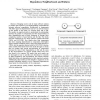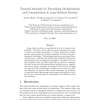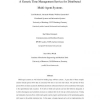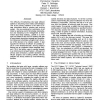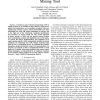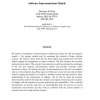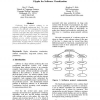201
click to vote
ICST
2011
IEEE
14 years 5 months ago
2011
IEEE
—Changing source code in large software systems is complex and requires a good understanding of dependencies between software components. Modification to components with little ...
102
click to vote
AC
2002
Springer
15 years 1 months ago
2002
Springer
How much does the choice of a programming language influence the prevalence of bugs in the resulting code? It seems obvious that at the level at which individuals write new progra...
126
click to vote
AO
2006
15 years 2 months ago
2006
Large software systems are modularized in order to improve manageability. The parts of the software system communicate in order to achieve the desired functionality. To better und...
AAI
2006
15 years 2 months ago
2006
Multi-agent systems are well suited for building large software systems. A great deal of these complex systems includes process flows that are concerned with time or are even time...
111
click to vote
IJCAI
1989
15 years 3 months ago
1989
The difficulty of maintaining very large software systems is becoming more widely acknowledged. One of the primary problems is the need to access information about a complex and e...
120
click to vote
SERP
2003
15 years 3 months ago
2003
In recent publications, two prominent approaches can be found which deal with the complexity of large software systems. First, there is the object–oriented approach, where ”ob...
129
click to vote
SERP
2004
15 years 3 months ago
2004
Attention to aspect oriented programming (AOP) is rapidly growing as its benefits in large software system development and maintenance are increasingly recognized. However, existin...
101
click to vote
ICSE
1987
IEEE-ACM
15 years 5 months ago
1987
IEEE-ACM
We present a formulation of interconnection models and present the unit and syntactic models -- the primary models used for managing the evolution of large software systems. We di...
125
click to vote
ICSE
1989
IEEE-ACM
15 years 6 months ago
1989
IEEE-ACM
The Inscape Environment is an integrated software development enviroment for building large software systems by large groups of developers. It provides tools that are knowledgeabl...
100
click to vote
IWPC
1997
IEEE
15 years 6 months ago
1997
IEEE
Producing large software systems is an extremely challenging engineering task. The main reason is the difficulty of managing the enormous amounts of code and the great numbers of ...
